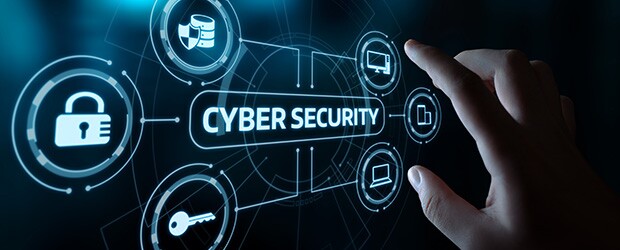Importance of cybersecurity?and How to Keep safe online
Describing the importance of Cyberattacks can cripple businesses and disrupt economic activities. The cost of addressing cyber incidents can

In today's interconnected world, where our lives have become increasingly digitized, the importance of cybersecurity cannot be overstated.
From personal information to critical infrastructure, almost every aspect of our lives relies on the internet. With this reliance, however, comes the ever-present threat of cyberattacks and breaches. In this blog post, we will explore the significance of cybersecurity and provide essential tips on how to stay safe online.
Understanding the importance of Cybersecurity
Before delving into the tips for staying safe online, it's essential to grasp the fundamental concepts of cybersecurity.
1. What is Cybersecurity?
Cybersecurity refers to the practice of protecting computer systems, networks, and data from theft, damage, or unauthorized access. It encompasses a wide range of measures and technologies designed to safeguard information and prevent cyber threats.
2. Why is Cybersecurity Important?
The importance of cybersecurity stems from the following reasons:
a. Protection of Personal Information: Our personal data, such as financial records, social media accounts, and health information, is stored online. Without proper cybersecurity measures, this information is vulnerable to theft and misuse.
b. Safeguarding Business Data: For organizations, cybersecurity is critical to protect sensitive business data, intellectual property, and customer information. A data breach can lead to financial losses, legal issues, and damage to reputation.
c. National Security: Cyberattacks can have severe consequences for a nation's security. Critical infrastructure like power grids, healthcare systems, and communication networks must be protected to ensure public safety.
d. Privacy: The importance of Cybersecurity helps preserve individual privacy, preventing unauthorized surveillance and data collection by malicious actors.
e. Economic Impact: Cyberattacks can cripple businesses and disrupt economic activities. The cost of addressing cyber incidents can be exorbitant.
Now that we understand why cybersecurity is so important, let's move on to practical tips on staying safe online.
Staying Safe Online
- Use Strong Passwords:
- Create unique, complex passwords for each online account.
- Use a combination of uppercase and lowercase letters, numbers, and special characters.
- Consider using a reputable password manager to generate and store passwords securely.
- Enable Two-Factor Authentication (2FA):
- Whenever possible, enable 2FA for your online accounts.
- 2FA adds an extra layer of security by requiring you to provide a second form of verification, such as a text message or authentication app code, in addition to your password.
- Keep Software and Devices Updated:
- Regularly update your operating system, software applications, and antivirus programs.
- Software updates often include security patches that address vulnerabilities.
- Be Cautious with Emails:
- Be wary of unsolicited emails, especially those with attachments or links.
- Avoid clicking on suspicious links or downloading attachments from unknown senders.
- Beware of Phishing Attacks:
- Phishing emails often impersonate legitimate organizations to trick you into revealing personal information.
- Verify the sender's identity and check for misspelled domain names or unusual email addresses.
- Secure Your Wi-Fi Network:
- Change the default login credentials for your router.
- Use a strong Wi-Fi password and encryption (WPA3 is recommended).
- Disable remote management of your router.
- Install and Update Antivirus Software:
- A reputable antivirus program can detect and remove malware.
- Keep your antivirus software updated to ensure it can identify the latest threats.
- Practice Safe Browsing:
- Use secure websites with "https://" in the URL for online transactions.
- Avoid downloading files or software from untrustworthy sources.
- Be cautious about sharing personal information on social media.
- Regularly Backup Your Data:
- Create backups of important files and data on an external device or cloud storage.
- In the event of a cyberattack or data loss, you can restore your information.
- Educate Yourself:
- Stay informed about the latest cybersecurity threats and trends.
- Educate yourself and your family about online safety practices.
Cybersecurity Challenges
Despite taking precautions, the landscape of cybersecurity is constantly evolving, and new challenges emerge regularly. Some of the ongoing challenges include:
- Advanced Threats: Cybercriminals are becoming more sophisticated, using advanced techniques like ransomware and zero-day exploits.
- IoT Vulnerabilities: The proliferation of Internet of Things (IoT) devices has created new entry points for cyberattacks.
- Social Engineering: Attackers often exploit human psychology through tactics like social engineering to trick individuals into revealing sensitive information.
- Supply Chain Attacks: Cyberattacks targeting the supply chain can compromise trusted software and hardware, making it challenging to detect threats.
- Regulatory Compliance: As data protection regulations like GDPR and CCPA become more stringent, organizations must ensure compliance while protecting user data.
In conclusion, the importance of cybersecurity in our digital age cannot be overstated. It is a collective responsibility that extends from individuals to businesses and governments. By following the tips outlined in this blog post and staying vigilant, you can significantly reduce your risk of falling victim to cyberattacks.
Remember that cybersecurity is an ongoing process, and staying informed about the latest threats is crucial. By adopting a proactive approach to online safety, you can enjoy the benefits of the digital world while minimizing the risks. Stay safe, stay secure, and protect your digital life.
What's Your Reaction?





















